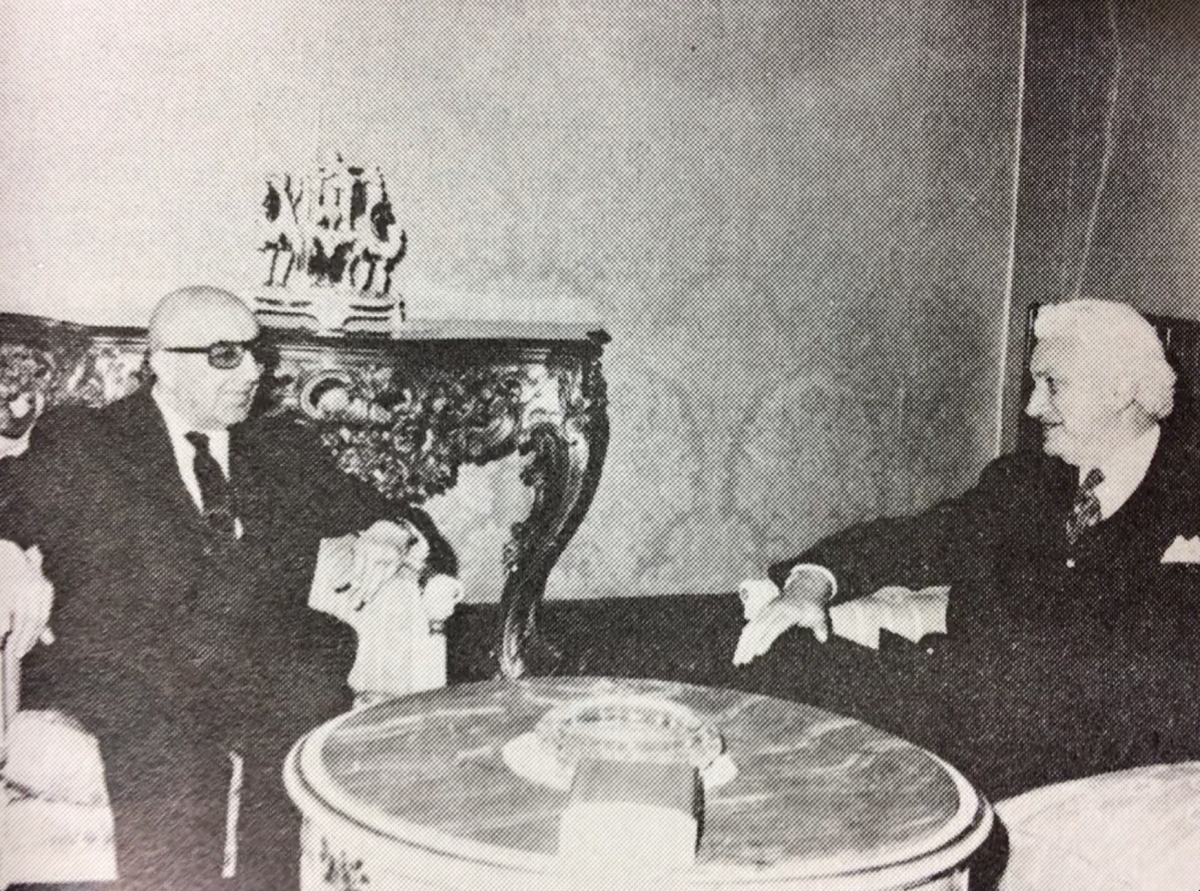Marking 56 Years of Enduring Afghan–Australian Ties Through Shared History and Evolving Times

Today, 30 March, marks the 56th anniversary of diplomatic relations between Afghanistan and Australia. Since 1969, the two nations have stood together, forging a relationship built on mutual respect, cooperation, and shared history.
To commemorate this milestone, we take a brief journey through key moments that have shaped the 56-year history of Afghan–Australian diplomatic engagement.
On 30 March 1969, Lewis H. (‘Lew’) Border became the first Australian Ambassador to Afghanistan, formally presenting his credentials—a necessary step in assuming his ambassadorial duties. A seasoned and accomplished career diplomat, Ambassador Border served during the early years of Afghan–Australian relations. This chapter came to a pause following the Soviet invasion of Afghanistan in 1978, which led to the suspension of diplomatic ties.
The visit of Sir John Kerr, Governor-General of Australia, to Afghanistan in 1974 (1353 in the Afghan calendar) paved the way for deeper bilateral relations. During this overland visit via the Torkham border, he met with Sardar Mohammad Daoud, then Prime Minister of Afghanistan, to discuss strengthening ties. One of the key topics of their meeting was facilitating consular services for Australian travelers passing through Afghanistan along the Hippie Trail. This marked the first official visit by a high-ranking Australian dignitary to Afghanistan.
On 1 May 1975, Dr. Ali Ahmad Popal, former Afghan Minister of Education and Ambassador to Germany, Turkey, and Pakistan, presented his credentials to the Governor-General in Canberra. Based in Tokyo, Dr. Popal became Afghanistan’s first non-resident Ambassador to Australia.
The connection between the peoples of Afghanistan and Australia stretches back even further, to the 1860s, when Afghan Cameleers contributed to the exploration and development of Australia’s vast interior, helping transport goods and open up the outback.
The September 11, 2001 terrorist attacks in the United States—carried out by al-Qaeda under Taliban protection—prompted a swift response from Australia. The Howard Government offered full support to the United States and joined international efforts to help restore Afghanistan’s security and development.
In this new phase of engagement, Mahmoud Saikal was appointed as Afghanistan’s first resident Ambassador to Australia. He presented his credentials on 27 June 2002 and served until 2005. During his tenure, he laid the foundation stone of the Afghan Embassy in Canberra in 2004. The Embassy officially opened on 18 August 2005.
In 2012, Afghanistan and Australia signed a Comprehensive Long-Term Partnership Agreement, solidifying their shared commitment to development, stability, and mutual cooperation. Since 2001, Australia has contributed more than $1.7 billion in development and humanitarian assistance to Afghanistan. Through its diplomatic, defence, and aid initiatives, Australia has been a strong supporter of Afghanistan's fight against terrorism and extremism.
Over the decades, the two countries have strengthened ties across a wide range of areas: development cooperation, humanitarian assistance, education—especially for women and girls—refugee support, diaspora engagement, and people-to-people links.
The post-2001 period saw a deepening of bilateral relations, highlighted by high-level visits and ongoing collaboration rooted in shared values.
Following the fall of Kabul on 15 August 2021, many Afghans—especially those at risk such as human rights defenders, civil society leaders, minorities, and female athletes—were forced to flee the country. In response, the Australian Government took significant steps to support those in vulnerable situations.
To coordinate its engagement, Australia established the role of Special Representative on Afghanistan (SRA), tasked with leading the government's response and liaising with domestic agencies and international partners to uphold Australia’s interests and assist the Afghan people.
After the Taliban’s takeover, formal diplomatic relations between the Australian Government and the Taliban regime were suspended, consistent with Australia’s policy of recognising States, not governments. Australia does not recognise the Taliban regime.
Nonetheless, the Embassy of the Islamic Republic of Afghanistan in Canberra continues to operate independently under the Vienna Convention of 1961. It remains committed to serving the Afghan people and maintaining the enduring ties between Afghanistan and Australia.

